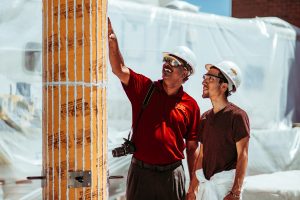
Reinforced concrete is a staple in the construction industry. In the transportation realm, this composite material is commonly used for bridge structures, highly durable in its prime and lasting roughly 50+ years as a high-quality concrete structure.
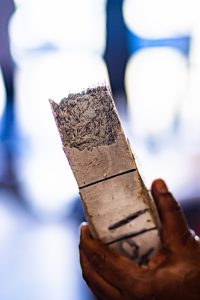
Iowa State University researchers have been studying a new material known as UHPC (Ultra-High Performance Concrete) for nearly two decades. UHPC – a combination of cementitious material and steel fibers – is significantly more durable than concrete and can extend the service life of bridges beyond 75 years. But now, they are exploring the use of sprayable/pumpable UHPC to accelerate bridge construction.
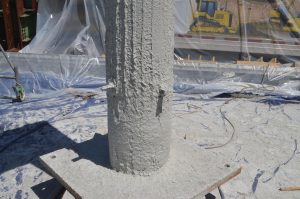
Department of Civil, Construction and Environmental Engineering assistant dean for research, Sri Sritharan, is collaborating with the Department of Transportation in California and the Department of Transportation in Iowa to create structures using this new form of UHPC in combination with the traditional concrete.
“We are trying to take bridge construction to the next level,” Sritharan said. “With UHPC, we are aiming to bring in bigger, lightweight pieces and connecting them together in the field faster using small cranes.”
“We are exploring the sprayable form of UHPC to cut onsite construction time down from multiple months to a few days without causing any transportation challenges,” Sritharan said. “In the past, construction workers would have to wait several days for concrete to set. The use of lighweight UHPC elements will eliminate this and accelerate the construction much faster.”
By collaborating with the transportation department in California, Sritharan and his team are not only testing this new form of UHPC material’s strength and its efficient use in accelerating bridge construction, but they are also testing UHPC’s ability to withstand natural disasters.
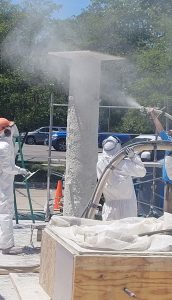
“In California, bridges are expected to experience earthquakes, so we have to account for that in our research as well,” Sritharan said. “In our evaluation, we are spraying UHPC and creating different surface textures to study how well it will bond with traditional concrete. Confirming the applicability and quality of sprayable UHPC opens up great opportunities, especially for repairing and rehabilitating both concrete and steel bridges.”
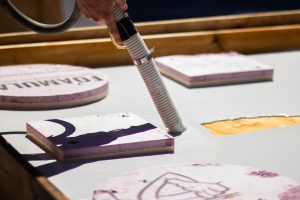
Sritharan has been doing UHPC work for many years. He was one of the trailblazers with testing of this innovative material and developing structural design solutions, being a part of Iowa’s first UHPC bridge applications – the first state to apply UHPC to bridges. Sritharan just completed a three-day project testing UHPC using spraying technology from Steelike, spraying structures of various sizes and textures for his research.
